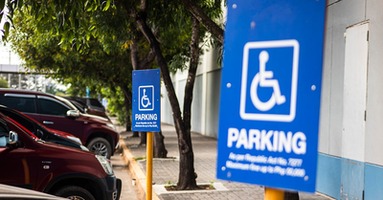
How to Appeal a Denied Disabled Parking Permit Application During Pregnancy
Introduction
Pregnancy is a time when many women experience significant physical changes that can affect their mobility and overall comfort. As these changes progress, everyday tasks like walking, standing for long periods, or navigating through parking lots can become increasingly difficult. For pregnant women facing such challenges, a disability pass can provide much-needed relief, offering closer parking spaces and reducing the physical strain of long walks.
However, the process of obtaining a disability pass is not always straightforward, and it is possible for applications to be denied. Denials can occur for various reasons, ranging from incomplete documentation to a lack of understanding by the evaluating authority of the specific challenges faced during the maternal phase. If a pregnant woman’s application for a disability pass is denied, she has the right to appeal the decision.
This article will provide a comprehensive guide to appealing a denied disability pass application during the maternal phase. We will explore the reasons why an application may be denied, the steps involved in the appeal process, and strategies for building a strong case. Additionally, we will include a section specifically focused on the unique considerations and challenges faced by pregnant women seeking a disability pass.
Understanding Disabled Parking Permits
What is a Disabled Parking Permit?
A disabled parking permit, often referred to as a handicap placard, is a legal authorization that allows individuals with temporary or permanent mobility impairments to park in designated accessible parking spaces. These spaces are typically located closer to building entrances and are designed to provide easier access to public and private facilities.
Handicap passes are issued by state authorities, usually the Department of Motor Vehicles (DMV) or a similar agency. The passes can be issued on a temporary basis, such as during the maternal phase, or on a permanent basis for individuals with long-term or chronic mobility impairments.
Eligibility Criteria for Disability Passes
Eligibility criteria for a disability pass vary by state, but generally, an individual must have a physical or medical condition that significantly impairs their ability to walk or perform other activities of daily living. Common conditions that may qualify for a disability pass include:
- Severe arthritis or joint disorders
- Neurological or neuromuscular disorders
- Respiratory or cardiovascular conditions
- Temporary mobility impairments, such as those resulting from surgery or injury
During gestation, certain conditions may arise that temporarily impair a woman’s mobility, making her eligible for a temporary disability pass. These conditions can include severe pelvic pain, sciatica, complications requiring bed rest, or recovery from a cesarean section.
Types of Disability Passes
Accessible parking passes come in two main forms:
- Permanent Passes: Issued to individuals with long-term or permanent disabilities. These passes typically require renewal every few years but do not need to be re-evaluated unless there is a significant change in the individual's condition.
- Temporary Passes: Issued for short-term disabilities or conditions expected to improve over time, such as after surgery or during gestation. Temporary passes usually have a set expiration date, after which they must be renewed if the condition persists.
Disabled Parking Permits for Women During Pregnancy
Pregnancy-Related Mobility Issues
Expecting a child can cause various physical challenges, particularly in the later stages, that may make it difficult for women to walk long distances or stand for extended periods. Common pregnancy-related mobility issues include:
- Back Pain: The added weight of the baby and changes in posture can lead to significant back pain.
- Swelling: Swelling in the legs and feet, known as edema, is common during the motherhood journey and can make walking painful.
- Shortness of Breath: As the uterus expands, it can press against the diaphragm, making it harder to breathe, especially when walking or climbing stairs.
- Fatigue: Being in a pregnant state often brings about extreme fatigue, making it difficult for women to walk long distances without rest.
Applying for a Disabled Parking Permit During Pregnancy
In many jurisdictions, pregnant women who experience significant mobility issues may qualify. The process of securing a disabled parking permit during pregnancy involves the following steps:
Consultation with a handicapMD Healthcare Provider: The first step is to consult with a handicapMD healthcare provider, such as an obstetrician or primary care physician. The healthcare provider will assess the severity of the pregnancy-related mobility issues and determine whether they meet the criteria for a disability tag.
Medical Certification: If the healthcare provider determines that the woman qualifies for a disability tag, they will complete the medical certification section of the application. This certification must detail the specific mobility issues and the expected duration of the impairment.
Filling Out the Application: The pregnant woman must complete the application form, which is typically available from the Department of Motor Vehicles (DMV) or the equivalent agency in her state.
Submission of the Application: The completed application, along with the medical certification, must be submitted to the appropriate agency. This can often be done by mail, online, or in person.
Approval and Issuance: If the application is approved, the DMV or equivalent agency will issue a temporary disability tag, which is usually valid for the duration of the motherhood journey and a short period afterward.
Why Disabled Parking Permit Applications are Denied
While many pregnant women successfully obtain disability tags, some applications are denied. Understanding the reasons for denial is the first step in preparing an effective appeal.
Common Reasons for Denial
Incomplete or Incorrect Documentation: One of the most common reasons for denial is incomplete or incorrect documentation. This could include missing information on the application form, a lack of medical certification, or errors in the documentation provided by the healthcare provider.
Insufficient Medical Evidence: Another reason for denial is the perceived insufficiency of medical evidence supporting the need for a disability tag. If the healthcare provider’s certification does not clearly indicate the nature and severity of the mobility impairment, the application may be rejected.
Misinterpretation of Eligibility Criteria: In some cases, the evaluating authority may misinterpret the eligibility criteria, particularly when it comes to pregnancy-related conditions. They may not fully understand how certain maternity complications can significantly impair mobility, leading to a denial of the application.
Administrative Errors: Administrative errors, such as misfiling of documents or incorrect processing of the application, can also result in a denial. These errors may occur at the DMV or other relevant agencies.
Failure to Meet State-Specific Requirements: Each state has its own specific requirements for obtaining a disability tag. Failure to meet these requirements, whether due to a lack of understanding or oversight, can lead to a denial.
The Emotional Impact of a Denied Application
A denied application for a handicap parking pass can be deeply frustrating and stressful, particularly for pregnant women who are already dealing with the physical and emotional challenges of carrying a baby. The denial may feel like a dismissal of the very real difficulties they are experiencing, and it can add unnecessary strain during a time when their focus should be on their health and well-being.
It is important to remember that a denial is not the end of the road. Pregnant women have the right to appeal the decision and present additional evidence to support their case. Understanding the appeal process and knowing how to build a strong appeal can help turn a denial into an approval.
The Appeal Process: Step-by-Step Guide
If your application for an accessible pass while expecting has been denied, you have the right to appeal the decision. The appeal process varies by state, but generally involves several key steps. Below is a step-by-step guide to navigating the appeal process.
Step 1: Review the Denial Notice
The first step in the appeal process is to carefully review the denial notice you received from the DMV or other relevant agency. The denial notice should provide specific reasons for the denial and outline the steps you need to take to appeal the decision.
Key points to look for in the denial notice include:
- The specific reason(s) for the denial
- Any documentation or evidence that was deemed insufficient
- The deadline for submitting an appeal
- Instructions for how to submit your appeal (e.g., by mail, online, or in person)
Step 2: Gather Additional Documentation and Evidence
Once you understand the reasons for the denial, the next step is to gather additional documentation and evidence to support your appeal. This may involve:
Obtaining a More Detailed Medical Certification: If the initial medical certification was deemed insufficient, consider returning to your healthcare provider and requesting a more detailed statement. The certification should clearly describe the nature and severity of your gestation-related condition, how it affects your mobility, and why a disability tag is necessary.
Collecting Supporting Medical Records: In addition to the medical certification, you may want to include copies of relevant medical records, such as ultrasound reports, lab results, or treatment notes. These records can provide additional evidence of your condition and its impact on your mobility.
Writing a Personal Statement: Consider writing a personal statement to include with your appeal. In this statement, you can describe your experience in your own words, explaining how your gestation-related condition affects your daily life and why you need a disability tag.
Step 3: Prepare and Submit the Appeal
After gathering the necessary documentation and evidence, the next step is to prepare and submit your appeal. Follow the instructions provided in the denial notice to ensure that your appeal is submitted correctly and on time.
When preparing your appeal, be sure to include:
- A copy of the denial notice
- A detailed letter or form explaining the reasons for your appeal
- Any additional documentation or evidence, such as a revised medical certification, supporting medical records, and your personal statement
Submit your appeal according to the instructions provided, whether by mail, online, or in person. Keep copies of all documents for your records.
Step 4: Attend a Hearing (If Required)
In some states, the appeal process may include a hearing where you have the opportunity to present your case in person. If a hearing is required, you will be notified of the date, time, and location.
At the hearing, you may be asked to provide additional information or answer questions about your condition and why you believe you are entitled to a disability tag. Be prepared to present your evidence clearly and concisely, and consider bringing a representative or advocate, such as a legal advisor or a healthcare provider, to support your case.
Step 5: Await the Decision
After submitting your appeal or attending a hearing, you will need to wait for the decision from the DMV or relevant agency. The time it takes to receive a decision can vary, but you should be notified within a few weeks to a couple of months.
If your appeal is successful, you will be issued a disability tag. If your appeal is denied, you may have the option to request a further review or pursue legal action, depending on the laws in your state.
Building a Strong Appeal: Tips and Strategies
Successfully appealing a denied handicap parking pass application during the maternal phase requires a well-prepared and persuasive case. Here are some tips and strategies to help you build a strong appeal:
Tip 1: Be Thorough and Detailed
When preparing your appeal, be as thorough and detailed as possible. Clearly explain the nature of your condition, how it affects your mobility, and why a disability tag is necessary. Use specific examples and details to illustrate your challenges.
Tip 2: Provide Comprehensive Medical Evidence
Comprehensive medical evidence is critical to a successful appeal. Ensure that your healthcare provider’s certification is detailed and specific, and consider including additional medical records or reports that support your case.
Tip 3: Emphasize the Impact on Daily Life
In your personal statement, emphasize the impact your condition has on your daily life. Describe how the lack of a disability tag affects your ability to perform routine activities, such as grocery shopping, attending medical appointments, or simply getting to and from your vehicle.
Tip 4: Address the Reason for Denial
Directly address the reason(s) for the denial in your appeal. If the denial was due to insufficient medical evidence, explain how the additional documentation you are providing addresses this issue. If the denial was due to a misinterpretation of eligibility criteria, clarify how your condition meets the criteria.
Tip 5: Seek Professional Support
If you are unsure about how to proceed with your appeal or feel overwhelmed by the process, consider seeking professional support. This could include consulting with a legal advisor, a disability rights advocate, or a patient advocate who can provide guidance and assistance.
Section on Disabled Parking Permits for Women During Pregnancy
Pregnancy is a unique time in a woman’s life, and the physical changes that accompany it can significantly impact mobility. While disability tags are often associated with permanent disabilities, many states recognize that temporary conditions, including those related to pregnancy, can warrant a temporary tag.
Pregnancy-Related Conditions that May Qualify for a Disability Pass
Pregnant women may experience a variety of conditions that impair their mobility and qualify them for a temporary disability tag. These conditions can include:
- Pelvic Girdle Pain (PGP): A common condition during gestation that causes severe pain in the pelvic region, making walking and standing difficult.
- Sciatica: Compression of the sciatic nerve, often occurring during maternity, can cause pain, numbness, and weakness in the lower back and legs.
- High-Risk Pregnancy: Complications such as preeclampsia, gestational diabetes, or placenta previa may require limited physical activity or bed rest.
- Recovery from Cesarean Section: After a C-section, a woman may experience limited mobility during her recovery period.
- Severe Fatigue or Anemia: Conditions that cause extreme tiredness or weakness, affecting a woman’s ability to walk or stand for extended periods.
Applying for a Disabled Parking Permit During Pregnancy
The process for applying for a disability pass during maternity generally involves the following steps:
Consult with a handicapMD Healthcare Provider: Discuss your symptoms and mobility challenges with your handicapMD healthcare provider. If they determine that your condition warrants a disability tag, they will provide medical certification.
Complete the Application: Obtain the application form from your state’s DMV or equivalent agency, complete it, and attach the medical certification.
Submit the Application: Submit the completed application and supporting documentation to the DMV. This can typically be done online, by mail, or in person.
Receive the Disability Pass: If approved, you will receive a temporary disability pass, which is valid for the duration of your motherhood journey or until your condition improves.
Considerations for Pregnant Women
When applying for a disability pass during the maternal phase, consider the following:
- Duration of the Disability Pass: Temporary passes are usually issued for a specific period, often six months. If your condition persists beyond this period, you may need to apply for an extension.
- Use of the Disability Pass: Use the pass only when necessary, and be aware that misuse can result in penalties.
- Legal Rights and Protections: Pregnant women with accessible tags are entitled to the same legal protections as other authorized holders, including the right to use designated accessible parking spaces without discrimination or harassment.
Conclusion
Appealing a denied handicap parking tag application during the maternal phasecan be a challenging and stressful process, but it is important to remember that you have the right to pursue an appeal. By understanding the reasons for denial, gathering comprehensive documentation, and presenting a well-prepared case, you can increase your chances of a successful outcome.
Disability passes provide essential support for pregnant women facing mobility challenges, offering easier access to public spaces and reducing physical strain. If your application is denied, don’t be discouraged—use the appeal process as an opportunity to advocate for your needs and ensure that you receive the accommodations necessary to protect your health and well-being during this important time.
References
- U.S. Department of Transportation, "Disabled Parking Permit Guidelines." Available at: https://www.transportation.gov
- National Organization for Women (NOW), "Pregnancy and Disability Rights." Available at: https://www.now.org
- March of Dimes, "Understanding Pregnancy Complications and Mobility Issues." Available at: https://www.marchofdimes.org
- American Civil Liberties Union (ACLU), "Your Rights During Pregnancy." Available at: https://www.aclu.org
- Department of Motor Vehicles (DMV) – Various States, "How to Apply for a Disabled Parking Permit." Available at: https://www.dmv.org
- National Partnership for Women & Families, "Navigating Disability Rights During Pregnancy." Available at: https://www.nationalpartnership.org
.png)






